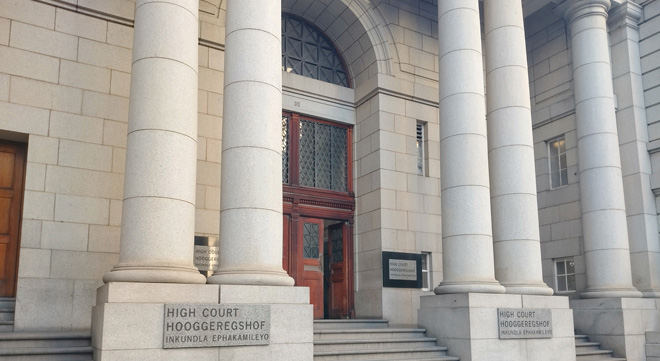The High Court in Cape Town has held two directors personally liable for unpaid retirement fund contributions, highlighting the potential consequences for employers who do not comply with their obligations under the Pension Funds Act (PFA).
The case centred on the application of the following provisions of the PFA:
- Section 13A(1), which requires employers to pay over both employee contributions (deducted from salaries) and employer contributions to a retirement fund promptly.
- Section 13A(8), which imposes personal liability on directors or members of a close corporation who are regularly involved in the management of financial affairs if the employer fails to comply with section 13A(1).
- Section 13A(9), which requires funds to notify the employer in writing of the persons who may be personally liable under section 13A(8). If the employer fails to provide such information, all directors may be held personally liable.
The Engineering Industries Pension Fund and the Metal Industries Provident Fund approached the High Court to hold the directors (second and third respondents) of Installair (Pty) Ltd accountable for their alleged failure to comply with the PFA.
Installair (first respondent) is in liquidation; therefore, no order was sought against the company as the participating employer in the funds.
The applicants sought an order compelling the directors to:
- Pay outstanding contributions of R93 715.53 as determined by the contribution schedules for January to April 2020.
- Submit the contribution schedules for May to July 2020 and pay the outstanding contributions, plus interest, based on those schedules.
The court was tasked with determining whether Paolo Orso (second respondent) and Sandra Orso (third respondent), in their capacity as directors, had breached their statutory duties and whether they could be held accountable under sections 13A(8) and (9).
Acting Judge Rehana Parker rejected the second respondent’s explanations regarding the contributions, finding them to be inadequate and unsupported by credible evidence.
According to the judgment, the Paolo Orso admitted that deductions were made from employees’ salaries but were used to subsidise net salaries instead of being remitted to the retirement funds as required by the PFA.
Parker AJ also concluded that Orso did not provide any explanation or justification for the employer’s portion of the contributions, which remained unpaid.
She said the Covid-19 pandemic and its general effects were not an excuse for not paying the contributions for January, February, and March 2020, during which time the employer was operational. The period January 2020 to almost the end of March 2020 was before the Covid-19 pandemic. The National Lockdown was imposed on 26 March 2020.
Furthermore, Installair generated sales of more than R232 000 between April 2021 and March 2023, notwithstanding its being in liquidation in May 2022.
It was submitted that Sandra Orso, although listed as a director, was not involved in the company’s financial or operational affairs. On this basis, it was argued that the personal liability provisions of section 13A(8) should not apply to her, and no order should be made against her.
Parker AJ rejected this assertion, saying Orso had to accept the responsibilities that came with being a director of the first respondent.
‘No need to pierce the corporate veil’
The directors contended that where an employer and the directors are unable to comply with their statutory obligations because of reasons beyond their control and have not been either reckless or negligent in their actions, the application of the personal liability provisions depends on two considerations:
- The circumstances that led to the breach of the statutory provisions by the employer and its individual directors.
- The extent to which the directors were responsible for those circumstances.
Parker AJ rejected this submission. At common law, the funds have no redress against anyone other than the employer. But section 13A(8)(a) permits funds to hold not only the employer but also the employer’s directors personally liable for the employer’s debts “without the need to pierce the corporate veil”. Parker AJ said this interpretation aligned with the plain meaning of the statute.
Parker AJ emphasised the critical role of retirement funds in ensuring retirement security, saying retirees aim to maintain a standard of living similar to that during their working years.
She said the recent implementation of the two-pot retirement system has highlighted the systemic problem of the non-payment of contributions.
“Given the high interest in withdrawal claims from the two-pot retirement system which has exposed the failure of employers to pay pension contributions, this [case] is but just another example of how retirees and those who thought they could readily access their benefits, suffer.”
Parker AJ said she would be failing in her constitutional duty “if an order is not granted to the vulnerable groups”.
In addition to granting the requested orders in respect of the outstanding contributions and the contribution schedules, the court also granted the applicants’ prayer for the awarding of punitive costs (attorney and own client scale).
The funds said their members were prejudiced by having to bear the legal costs incurred to access their benefits and faced unwarranted reduced benefits. Parker said the punitive costs order was justified because the directors and the employer have neglected their statutory responsibilities.



